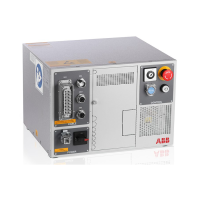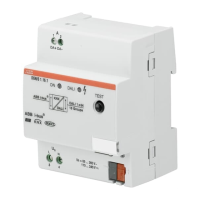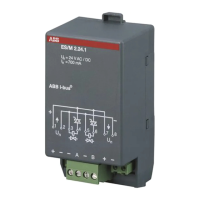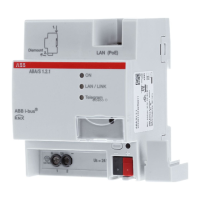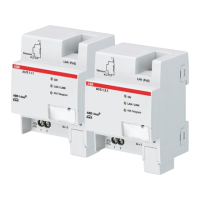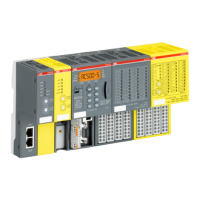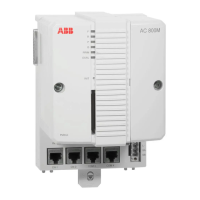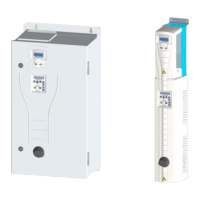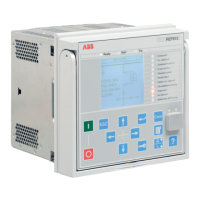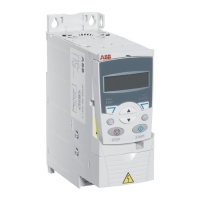1 Collision Detection
1.1.1. Overview
113HAC18154-1 Revision: F
© Copyright 2004-2008 ABB. All rights reserved.
1 Collision Detection
1.1 Introduction
1.1.1. Overview
Purpose
Collision Detection is a software option that reduces collision impact forces on the robot. This
helps protecting the robot and external equipment from severe damage.
WARNING!
Collision Detection cannot protect equipment from damage at a full speed collision.
Description
The software option Collision Detection identifies a collision by high sensitivity, model based
supervision of the robot. Depending on what forces you deliberately apply on the robot, the
sensitivity can be tuned as well as turned on and off. Because the forces on the robot can vary
during program execution, the sensitivity can be set on-line in the program code.
Collision detection is more sensitive than the ordinary supervision and has extra features.
When a collision is detected, the robot will immediately stop and relieve the residual forces
by moving in reversed direction a short distance along its path. After a collision error message
has been acknowledged, the movement can continue without having to press Motors on on
the controller.
What is included
The RobotWare option Collision Detection gives you access to:
• system parameters for defining if Collision Detection should be active and how
sensitive it should be (without the option you can only turn detection on and off for
Auto mode)
• instruction for on-line changes of the sensitivity:
MotionSup
Basic approach
Collision Detection is by default always active when the robot is moving. In many cases this
means that you can use Collision Detection without having to take any active measures.
If necessary, you can turn Collision Detection on and off or change its sensitivity in two ways:
• temporary changes can be made on-line with the RAPID instruction
MotionSup
• permanent changes are made through the system parameters.
For detailed descriptions of how this is done, see How to use Collision Detection on page 18.
